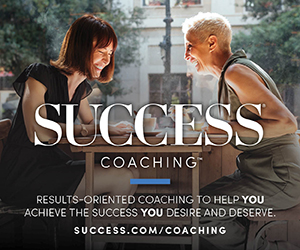Jenni Flinders believes in being a learner, not a knower.
“I’ve seen it so many times: People come into a meeting believing they know the answer,” says the 22-year IT veteran and vice president of Microsoft’s U.S. Partner Group. “But if you just listen to a group of people, the speaker is not shut down, and you’d be surprised at what you actually learn. Every idea has merit and deserves to be heard at least.”
Being a learner and not a knower is among Flinders’ top grounding principles that have guided a career noted as one of the longest and most successful for a woman in the male-dominated technology industry.
Being a “learner”—that is, open to new ideas, people and cultures—holds an underlying value for all businesses, she says. By opening the forum, you find new concepts and solutions, encourage collaboration and nurture innovation—the foundation of any successful enterprise. “It doesn’t matter what industry you’re in; you have to be innovative and attract and inspire talent,” she says.
While these might be universal maxims, Flinders’ business of choice has always been technology. Raised in South Africa, she and her four brothers moved frequently due to her father’s job as a railroad engineer. “Growing up with four brothers meant a lot of science experiments and pulling things apart all the time, which drove my mother crazy,” she says with a laugh. Flinders and an older brother got their hands on a computer in the mid ’80s and dissected that, too. “I was always a gadget girl,” she says.
She enrolled in college with the aim of becoming a surgeon but dropped out for personal reasons—a move she doesn’t regret because it ultimately facilitated her passion. Plus, she found that learning is not found only in ivory towers. “What I’ve learned in industry is far more than I could have learned in school,” she says.
Her first tech job was with a software company specializing in accounting and payroll systems. There she found herself listening very carefully to the end customer—payroll employees who faced a revolution when their work moved from paper to computers. “It was a paradigm shift for them,” she says. They were so unfamiliar with technology, “When we told them to file the data, they punched holes in the floppy disks” to store them in binders.
“In the early days, the technology was evolving so rapidly, it just fascinated me,” Flinders says. So much so that she earned a certification in network administration.
“I’ve done the groundwork and really understand the backend of the business,” she says. This education has facilitated her ability to communicate, lead and, yes, learn throughout the rest of her career.
Some of her leadership and learning skills were acquired by finding herself as a minority—a woman in technology, a white person in South America or Africa, a non-Spanish or Portuguese speaker in places where those languages dominate. Some of Flinders’ early professional years were spent at Lotus and IBM, where she focused on sales and business activities for small and midmarket businesses in English-speaking African countries. In 2003, several years after joining Microsoft, she became head of Microsoft’s Latin America midmarket business and sales.
“[Being a minority] has really taught me so many different skills from a leadership standpoint,” she says. One of the simplest but most important lessons she learned was to slow down her rate of speech when delivering presentations in Latin America. “I tend to talk very fast, and I became really aware of how I was delivering certain messages,” she says. By learning to communicate effectively, she was able to truly connect with her employees, clients and partners. “From a cultural standpoint, I was able to relay emotion and get them to buy into a vision they understood. By effectively communicating, I could also better understand them as well. It sounds like a small thing, but slowing down the rate at which I speak was one of the most impactful things I did in a short amount of time.”
Experiences as a minority made her more aware of the power of successful workplace inclusion programs. “If you take the time to let someone from a very different culture feel comfortable enough to express their ideas, it is amazing what can come through,” Flinders says. And diversity might mean gender, culture, language or even being employed by a subsidiary and not the parent company, she says.
Flinders experienced a successful multinational collaboration nearly a decade ago when a handful of Microsoft employees from offices around the globe met in Spain to brainstorm ideas for a midmarket relationship program. “It was amazing—over a period of a few days we created a product that is still in place today,” she says. “That success was a product of taking smart brains from other places and everyone contributing what they’re good at.”
Flinders believes strongly in mentoring and makes it part of her leadership plan. “Women need to support other women. I not only mentor women but also people from different countries,” she says. “As a leader, I believe in giving back and encouraging other people.” Even in this role, her “learner, not knower” mantra applies: “I ask a lot of questions, and I spend a lot of time helping others think through different scenarios,” she says.
But mentoring is a two-way street, one that should be used to build a wide and varied group of connections in diverse fields and companies. “People think you can go to two networking meetings and you’ve built your network. Rubbish!” she says. Instead, your networks should be viewed as a web of experts who can help you think through problems and challenges you will inevitably face throughout your career. “You can’t know everything yourself,” she says.
And, mentoring within your organization is good for business. “Mentoring builds loyalty and trust, and it fosters an environment in which people feel respected and heard, which fosters innovation,” Flinders says. “It inspires people in a way that benefits the company at the end of the day.”
Career Smarts
Flinders’ Tips on Being a Learner
⇒Listen. Don’t assume you already know the answer. “Every idea has merit and deserves to be heard at least.”
⇒Open your mind—to new ideas, people and cultures, and you’ll find new solutions, encourage collaboration and nurture innovation.
⇒Be a mentor. You aren’t just imparting knowledge and experience—you’re gaining it, too.



